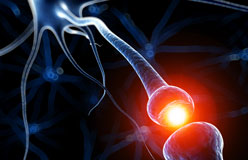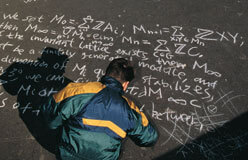You can last longer without food than without sleep. Missing one night’s sleep makes you crabby and clumsy. Two nights of no sleep drain your brain.
You have trouble thinking and functioning. After five nights awake, you see things that don’t exist. Death may soon follow, because your brain can’t perform important bodily functions without sleep. In 1968, Bertha van der Merwe of South Africa set the official no-sleep record. Observed by doctors in a hospital, she went without sleep for 11 days, 18 hours, and 55 minutes.
Sleep is a vacation for your body, but not for your brain, which works as hard at night as it does all day. Scientists aren’t sure exactly what the brain does at night. Is it replacing used-up chemicals? Is it filing, organizing, and disposing of the day’s information? Could it be solving problems? Whatever the brain’s nightly tasks may be, they have to be performed in order to keep you alive and functioning.







